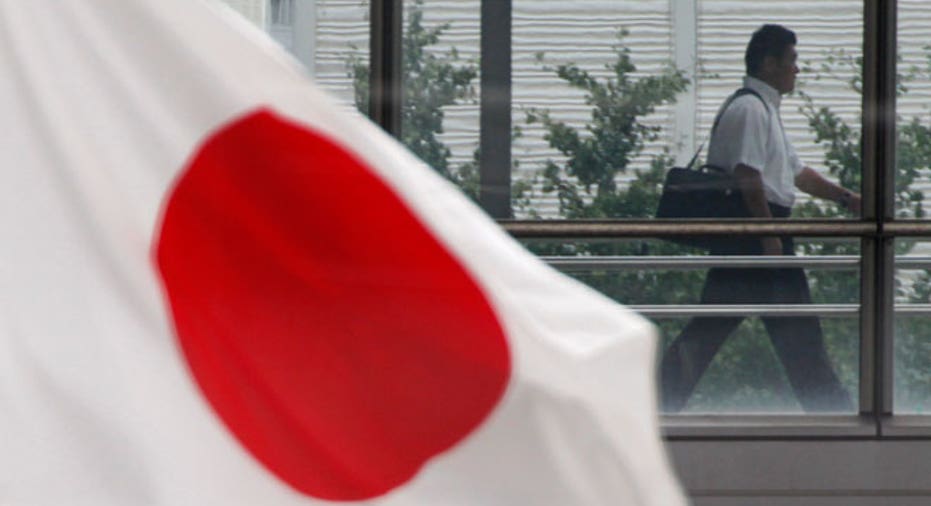Back From the Dead, Japan Now Hogging the Global Spotlight

For the better part of the past two decades, the dormant stock market and lifeless economy of Japan had been a virtual nonfactor for U.S. investors.
That’s a stunning statement given the fact that Japan’s $5.9 trillion economy is the world’s third largest and its currency is among the deepest and most stable in the $4.7 trillion foreign-exchange market.
“They left Japan for dead. The bond market there was boring. It just sat there and had been dead and disappointing for so many years,” said Michael Block, chief strategist at Rhino Trading Partners.
But all of that changed about six months ago when newly-elected Prime Minister Shinzo Abe embraced an aggressive form of monetary and fiscal policy aimed at halting years of deflation in Japan by effectively devaluing the yen to prop up crucial exports.
Inspired by the dramatic change in policy from Abe, the benchmark Nikkei 225 stock index went on a rocket ship between November 13 and May 23, shooting 85% higher and emphatically forcing global investors to reassess their stance on Japan’s irrelevancy.
“He’s getting the world’s attention,” said Peter Kenny, chief market strategist at Knight Capital Group (NYSE:KCG). “Abe’s policies, though very clear, intentional and potentially disruptive, they’re not actually that radical if you look at what the U.S. Federal Reserve has done with quantitative easing.”
Boom and Bust in Tokyo
While Japan had long taken a backseat in the financial news flow to China, which overtook it as the No. 2 global economy in 2011, and even more recently the likes of Spain, Greece and even Cyprus, today it’s clearly front and center.
“For many years, investors had kept Japanese equity exposure below benchmarks, which generally made sense given its under-performance. Investors cannot afford to do so any more,” currency analysts at Brown Brothers Harriman wrote in a note on Thursday.
Nowadays U.S. markets have increasingly taken their early cues from the action in Tokyo, which has been on quite the rollercoaster ride.
For example, U.S. investors awoke on Thursday to discover the Nikkei plummeted 6.35% overnight, roughly the equivalent of a 950-point nosedive on the Dow Jones Industrial Average.
Spooked by concerns that the Bank of Japan won’t accelerate its bond purchases or that the Abe government won’t introduce new stimulus measures, the yen has begun to increase in value against the dollar. Since tumbling to a new 52-week low on May 17, the yen has soared almost 8% against the greenback, threatening to hurt exports from the likes of Sony (NYSE:SNE).
‘Learning Curve’
In response, the Nikkei has plunged 20% since just May 23 -- tumbling into bear-market territory in the span of just 16 trading days.
“The communication strategy out of Japan seemed to have hit a learning curve,” said Block.
While such a stock slump would ordinarily concern U.S. investors, it takes on even greater importance given the fact that market participants have increased exposure to Japan during the recent hot streak.
“Now it’s over-owned. You’ve had a lot of Johnny-come-lately’s try to catch the wave,” said Block.
That means investors in U.S. and European markets may now be experiencing serious pain in Asia, prompting them to become that much more risk averse just as they try to decipher the latest central-bank conundrums in the U.S.
Dan Greenhaus, chief global strategist at BTIG, blames the recent turbulence hitting U.S. markets – the VIX volatility index has surged 23% since May 23 – on Tokyo, not Washington.
“It’s not the Fed, but the Bank of Japan that’s worrying markets,” Greenhaus said in a note to clients this week. “Wavering on the part of Japanese policymakers has induced a decadently rational reaction from global investors.”
‘Carrying’ Turbulence Overseas
The volatility in Japan is also complicated by the yen carry trade, the strategy where investors borrow cash in the Japanese currency and then use the proceeds to buy higher-yielding assets like U.S. stocks.
That trade suddenly became far less attractive in recent weeks as the yen stopped losing ground against rival currencies amid the mixed messages emerging from Tokyo.
The attention on Japan comes at a time of relative calm elsewhere, with the U.S. in between earnings season and Fed policy meetings and as Europe’s sovereign debt crisis remains calm.
“There’s not much in terms of headline-grabbing news at the moment. In this very small and brief window, the story is Japan,” said Kenny.



















